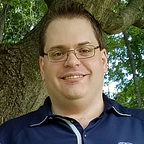Paranoia Almost Destroyed Me, Part 2
Paranoia as an autistic person can be incredibly disruptive to your daily life and mental health. In August 2021, I experienced the longest uninterrupted paranoia episode I have yet had. Six months earlier, I started a job coaching program with a local employment service provider. Unfortunately, I was troubled by my inability to choose a job. They offered their mobile psych program to help ease my indecisiveness.
I met weekly with the mobile psych rep to talk through my hesitation about what employment to pick and apply for. However, on Monday, August 2nd, they informed me that all of my appointments scheduled with them were canceled. In addition, I was ordered to attend a meeting on the last day of the month. August has 31 days. That left me in the dark for 29. With so little information, my mental health quickly descended into a tailspin.
I was unaware if I had done anything wrong. But my past history of social problems and miscommunications instantly made me feel vulnerable. So, in the first few hours, I feverishly second-guessed everything that had led up to that day. I was also one mobile psych appointment away from finally feeling comfortable and ready to apply for jobs. This disruption had shattered my progress. Everything came to a screeching halt.
The next day, I pleaded with the provider for more information. They refused. To say it was chaos was an understatement. This was only the first 24 hours. By Friday, I was a mess. I felt more terrified than it made sense to feel. I was increasingly unable to sleep. My blood pressure went up. I mistakenly started to assume I had done something wrong. This made me forget that my case manager was on vacation until then.
As soon as she answered my text, I was in such a panicked frenzy that she had to scold me just to get me to calm down. Fortunately, I came to my senses and apologized. Somehow, though, my case manager already knew some of what had happened. She received a memo that outlined a minimal amount of information. I instinctively asked if I was in trouble. She was not certain. The following week, what she found out was rather curious.
My case manager confided that my care provider’s liaison personnel were furious about how my case was being handled by the service provider. So much that they uncharacteristically yelled at the opposing staff. It was confirmed that I had to attend this special meeting on August 31st. I was given no further details. The next three weeks were absolutely nerve-wracking and took what felt like an eternity to pass.
Mercifully, the day of August 31st finally came. When my case manager arrived, we both entered the service provider’s building. I was never told who would be there. The presence of several distinguished looking people seated at the large, u-shaped table made me anxious. One was a VP of Operations. The meeting began before my case manager’s supervisor arrived. So he phoned in. Nothing could have prepared me for what happened.
In a cold and calculated manner, I was accused of misconduct. I do not remember much of what took place because it was too overwhelming to process. I struggled with paranoia for 29 days straight. The inclusion of my case manager’s supervisor was pointless. Knowing I was a suicide attempt survivor, he did nothing to safeguard my mental health. What happened afterwards nearly cost me my life.
I exited the building with my case manager and her supervisor before I went to get into my car. As soon as I shut the door, this sound triggered a brutal collapse of my composure. I was instantly overcome by a panicked rush of emotions. All I could think of was to drive. And I drove — to the last place I had contemplated suicide back in August 2018. A park with a view. I cried frantically most of the way there.
The park was empty. My breathing was labored. My body felt heavy. I remember having tunnel vision as I trudged towards the small pavilion. Once seated, I looked onward at the sight of my quarry. For over two hours, I repeatedly contemplated taking my life. This is what is known as an act of suicide furtherance. Not an active attempt but a furtherance of risk to the individual. In my case, I was at a location where I could end my life.
Only 100 feet separated me from the point of no return. Thankfully, I decided to walk away. “No one factor causes suicide” is the biggest, ablest lie about suicide prevention that you will ever know. It was clear to me who was responsible. The employment service provider was never able to prove I had done anything wrong. I suspected they sought to sever ties with me for my lack of progress. The Americans with Disabilities Act was useless.
It would take just two weeks to uncover the most damning truths of all. My own care provider knew I was a suicide attempt survivor. They did not proactively safeguard my mental health. It gets worse. My case manager found out why her supervisor failed to act. It was intentional. My care provider had a contract agreement with the service provider. Their contract was more important than my life!
After that month, that day, I feared paranoia as much as suicide…
Concluded here in Of Hypothesis and Paranoia, Part 3.
